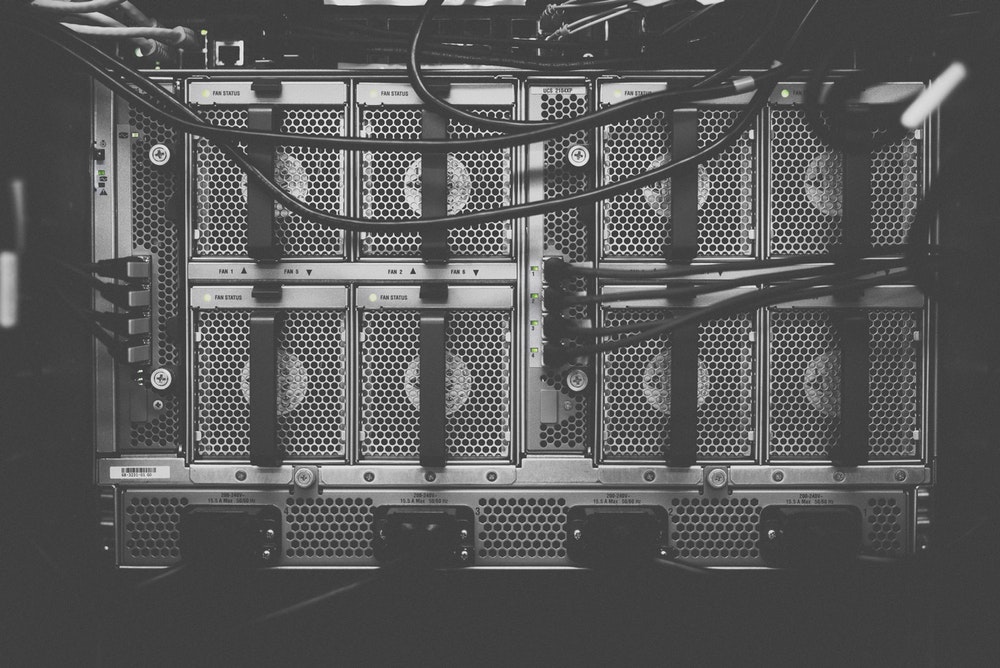The Future of Intranets, the Digital Workplace, and the Impact of AI on Governance & Information Security [Part 2]
Now that we've fully sprinted into 2018, we've gathered the Bonzai Founders once again to forecast, predict and pontificate on what's in store for the future of all things intranet and digital workplace.
In Part 2 of this two-part Predictions series, we explore the changing nature of the intranet, the digital workplace, the importance of information governance, the impact of Microsoft updates and growing concerns around risk & security. In Part 1 of the series, we explored how Artificial Intelligence (AI), Chatbots and the changing nature of the working environment are shaping the future of the intranet landscape. In case you missed Part 1 of Predictions for 2018, you can check it out here. >> https://blog.bonzai-intranet.com/part-1-2018-current-landscape-and-future-predictions-for-the-intranet-space
Ready to Relinquish Governance & Information Management to AI?
Intranet Governance protocols and savvy information management are fundamental in the creation of a sustainable intranet that withstands the test of time. Historically, governance has been a dividing topic; one that either elicits boredom or in contrast; comfort, depending on the individual.
This conflicting gap in the Governance arena can be bridged when there is understanding and awareness of its fundamental significance. Once the importance of Governance has been established, everyone can appreciate it's role in creating a viable intranet platform.
Organization's are keen to obtain a generous return on their intranet investment, choosing a platform that can be adapted and supportive of organizational needs for the foreseeable future.
Exceptional Governance and Information Management are key to achieving this. It's imperative to strike a balance; doing enough to stay on top of information management whilst avoiding the creation of a huge workload to achieve this.
“The trend continues in 2018 for content owners to concentrate on the core basics- governance and information management; both of which continue to be an important focus for organizations. There’s a trend towards moving away from traditional methods of communication, such as emails and newsletters and moving towards a more web-based approach to engagement, thanks to the continuous reductions in intranet deployment time,” explains Michal Pisarek, Director of Product at Bonzai.

Image Source: Unsplash
The concept of “shared content ownership,” is prevalent and helps to achieve a holistic approach for managing intranet content. With this approach, content ownership is given at a departmental level, with departments responsible for updating and managing their own content.
Clear guidelines and robust governance are essential for this approach to be successful, so that content authors comprehend best practice for contributing and managing content on the intranet. It’s helpful for employees to feel as though they can contribute to the intranet by providing feedback and comments, which greatly helps to increase employee engagement and harness company culture.
Irrespective of which content-ownership approach is chosen, it’s the information architecture and information management that matter most.
Machine learning and algorithms can facilitate information management by combing through unstructured text to learn the optimal data structure over time. In this way, AI can be used to streamline the management of information, help with decision-making and weed out duplicate documents for deletion. Machine learning can also be applied to optimize data quality, by utilizing algorithms to flag and/or update inaccuracies in the data.
"In the near future, AI will have embedded itself into every part of the organization. Right now, AI has huge potential for decision-making and can greatly support information management; enabling organizations to make more accurate decisions faster," declares Matthew Carriere, Director of Engineering at Bonzai.
For optimum results, this method should be used in partnership with human intervention. This results in a two-pronged approach, whereby first AI flags what it has learned to believe and second a human verifies whether these learned beliefs are true or false. There has been significant progress in this space but we're not quite ready to relinquish the entire governance and information management process to AI...yet.
Regardless of whether information management is operated and maintained solely by humans or in partnership with machine learning, thoughtful content architecture and clear communication guidelines must be established to achieve a successful governance structure on an intranet.
The Impact of Microsoft Updates on Intranets
Microsoft developments and updates can have adverse impacts on many intranet solutions; particularly bespoke SharePoint intranet sites. In the case of our client Capital Power, Microsoft updates severed much of their custom-built intranet they leveraged before using Bonzai and rendered it obsolete.
“Bonzai leverages a lot of SharePoint functionality which means Bonzai will also evolve as new technology becomes available on SharePoint and O365,” explains Denise Ching, Director of Solution Delivery at Bonzai.

Image Source: Unsplash
At Bonzai, we leverage Microsoft updates so that they augment our intranet platform and enable us to subsequently pass this value on to our customers. Microsoft updates enable us to advance our technology harnessing the latest Microsoft technologies to deliver more.
“An Intranet goes from ‘project’ to ‘product’ as a result of Microsoft changes and updates to Office 365. These updates make it very difficult for organizations to go it alone to create a successful intranet. Without a vendor that provides a robust technology and delivers best practice around change management and information architecture, success is often out of reach,” shares Michal Pisarek, Director of Product at Bonzai.
We're excited by the upcoming release of Microsoft Office 2019 and are eagerly awaiting the previews of the new apps and servers, which Microsoft says are due for release in Q2 of this year. Bonzai looks forward to exploring this anticipated offering to assess the exciting implications and enhancements it may provide.
What's the Risk with AI & Information Security?
The average total cost of a data breach in the US is $7.35 million, according to the 2017 Cost of Data Breach Study: United States sponsored by IBM. It's no wonder risk avoidance and security are high on the list of priorities for most organizations, taking the necessary steps to prevent a data breach.
The importance of data protection is also echoed in Europe with the imminent Government Data Protection Regulation (GDPR), set to come into effect on May 25th 2018. Proving that security and risk avoidance are considerations for both organization's and regulatory bodies alike.

Image Source: Pexels
“With the Bonzai intranet platform, the company information and data are stored in our clients' SharePoint environment, which is a huge relief for many of our customers. They have faith and control over their IT security protocols, so keeping the information in their environment is one less thing for them to worry about,” explains Denise Ching, Director of Solution Delivery at Bonzai.
There's a great opportunity for Artificial Intelligence to help organizations with their data security and risk analysis. However, from an automated detection perspective; AI alone isn’t quite there yet. This is because algorithms tend to flag a greater number of false positives (which humans eventually disregard), resulting in better outcomes when human involvement is ingrained in the process. Therefore, the opportunity lies with the combination of both Artificial Intelligence and human intervention in order to effectively enhance the data security space.
“AI is all about collecting data. The quality and amount of data collected provides AI applications with its possibilities. For organizations where collection and storage of company and employee data is a concern, more conversations will be had to determine what data is being collected/stored and how it will be used,” adds Denise Ching, Director of Solution Delivery at Bonzai.
Is Cloud Computing Now Mainstream?
The concept of cloud computing has been around since the 1960's but the real-world application of the cloud environment has become increasingly popular over the last decade, with many organizations better understanding and appreciating the value cloud computing can provide.
Even with more trust around cloud environments and an increase in organization's leveraging cloud services, there is still a proportion of people that are skeptical and prefer to keep their data on-premises.

Image Source: Pexels
"We see an increase in Cloud comfort levels as the use of cloud environments becomes increasingly common in organizations. Nevertheless, concerns still come up from time-to-time and some clients just aren't prepared to have files hosted in the cloud. These customers generally have a ton of questions and concerns, but as time goes on, cloud usage will become much more mainstream and IT departments will become more inclined to adopt," observes Shereen Qumsieh, 2-time Microsoft SharePoint MVP & Director of Product Development at Bonzai.
It's exciting to see what the future holds and the actual impact of these emerging technologies on the intranet and digital workplace. There's huge potential for AI, chatbots and machine learning to significantly influence and shape the digital workplace of the future.
As mentioned in Part 1 of this Predictions in 2018 blog series, the changing nature of the work environment for organization's today will also influence the future of the digital workplace, raising it's significance and importance in supporting the entire workforce, irrespective of their physical location.
The burning question remains... Will the adoption of AI, IOT & Machine Learning be as rapid and impactful as its preceding 'revolutionary' technologies? We would love to hear your thoughts on this...please comment below.
Meet the Founders of Bonzai Intranet:
Denise Ching, Co-Founder & Director of Solution Delivery
Denise has a background as a Business Analyst, Project Manager and SharePoint Consultant to prepare her for her current role of Director of Solution Delivery at Bonzai Intranet.
Denise has the privilege of working with project stakeholders from a variety of industries to identify business needs, facilitate workshops, gather requirements, communicate change and new capabilities introduced by technology.
Matthew Carriere, Co-Founder & Director of Engineering
With over a decade of software development experience, Matthew prides himself on being able to lead through example, writing code alongside members of the Bonzai development team. Matthew works directly with the team, crafting the best possible solution that can be delivered efficiently and repeatedly.
Matthew is responsible for finding the right developers to cultivate and motivate their talents to deliver and continuously evolve the Bonzai platform to be the award-winning intranet it is today. This requires a deep technical understanding of the platform, the tools available to drive automation, as well as the capabilities of cloud technologies to improve efficiency and manage costs.
Michal Pisarek, Co-Founder, Director of Product
Michal is a 6-time Microsoft SharePoint MVP, an award that is given to experts in the Microsoft SharePoint community for sharing their passion, technical expertise and real-world knowledge. Michal's passion is in ensuring that SharePoint is seen primarily as a business platform so that organizations can take full advantage of the many capabilities that it offers. Acknowledged as a thought leader in the SharePoint space, he is a frequent speaker at many international events and has been referenced in publications and presentations by organizations such as Gartner and StepTwo.
Michal's passion to see organizations use SharePoint effectively led to him co-founding Bonzai. The company’s mission – and Michal’s – is to fundamentally change the way SharePoint is implemented around the world.
Shereen Qumsieh, Co-Founder, Director of Product Development
Shereen is a 2-time Microsoft SharePoint MVP, an award that is given to experts in the Microsoft SharePoint community for sharing their passion, technical expertise and real-world knowledge. With over a decade of software development experience, Shereen specializes in specializations includes: Ruby on Rails, React development, JavaScript and web design leveraging SASS and CSS.
As Director of Product Development at Bonzai, Shereen works with her team to deliver an award-winning intranet platform that leverages the best functionality of Microsoft SharePoint and Office 365 into an integrated, cohesive solution that better organizes, engages and connects organizations.

It’s Time To Transform
Let us show you how much easier your work life can be with Bonzai Intranet on your team.